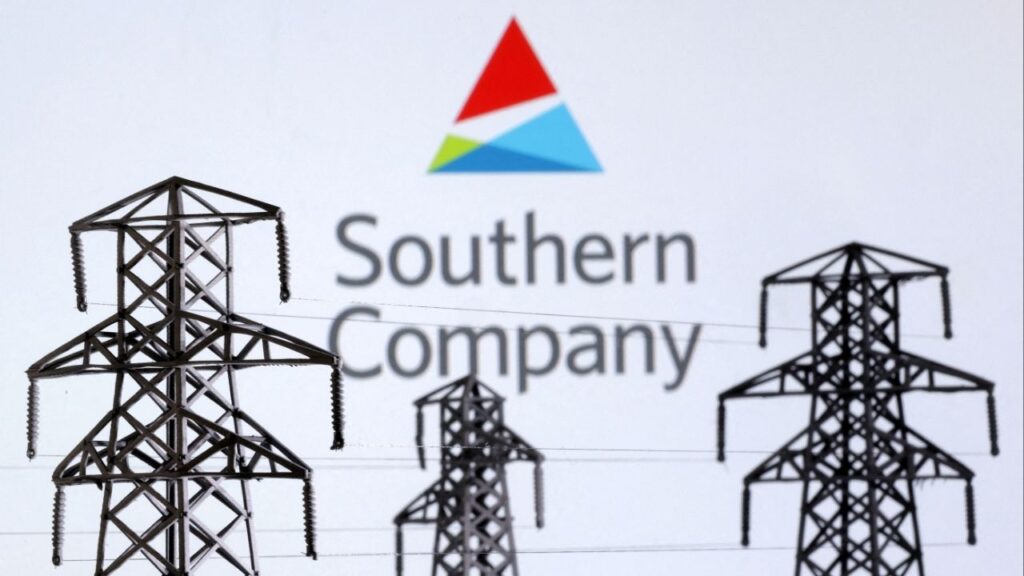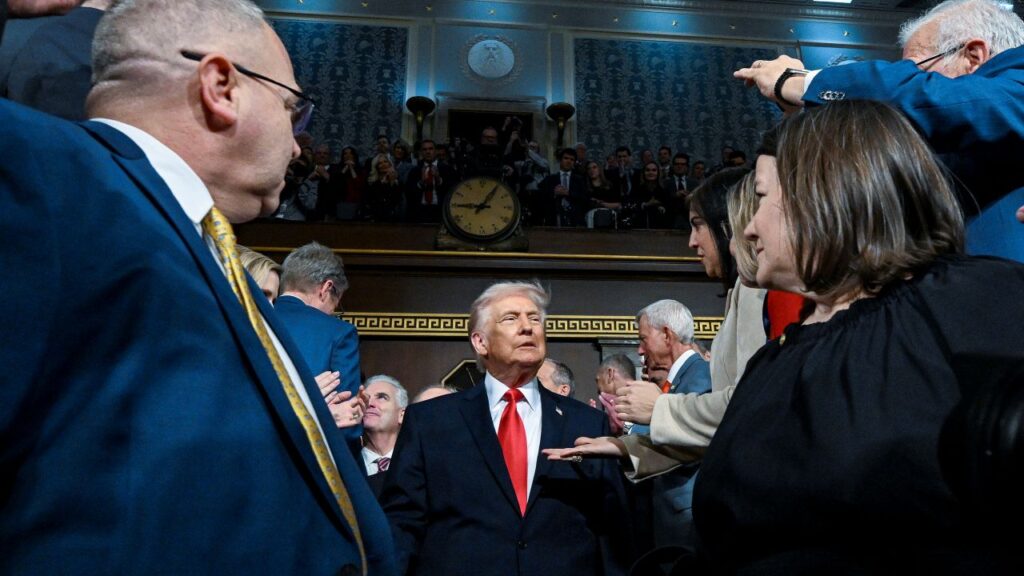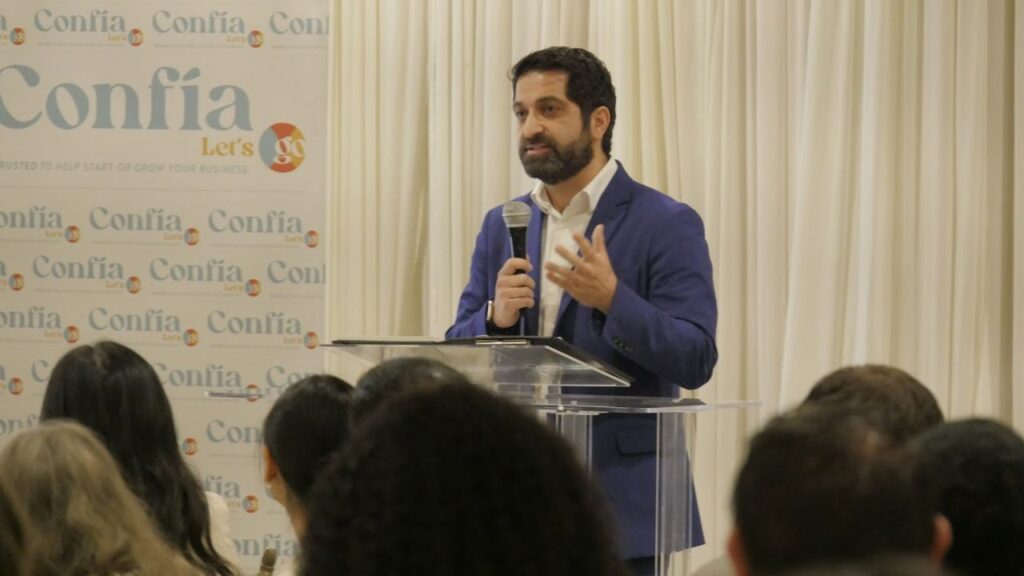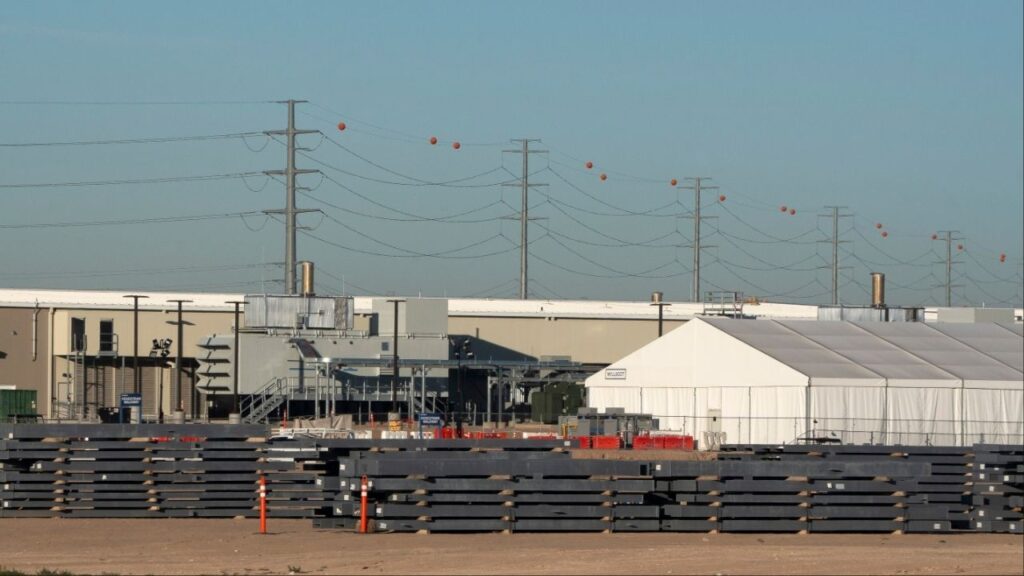The delay in the California Public Utilities Commission's vote on a utility-backed plan for solar power highlights ongoing tensions between stakeholders and the need for balanced policies. (AP/Salvador Melendez, Pool)

- The California Public Utilities Commission postponed a crucial vote on an electric utility-backed plan that could impact "community solar" projects.
- The debate over solar incentives and community solar projects reflects ongoing tensions between utility interests, renewable energy advocates, and policymakers.
- Legislative efforts, such as State Senate Bill 1374, highlight broader concerns about equitable access to solar energy.
Share
|
Getting your Trinity Audio player ready...
|
Governor Gavin Newsom’s stance on local solar power is under scrutiny as the California Public Utilities Commission postponed a vote on a plan backed by Southern California Edison.
Critics of the plan argue it would hinder “community solar” projects, or small-scale solar farms that benefit renters and low-income families.
National Voices Pitting Community Energy Projects Against Utility Companies
Originally scheduled for a vote on Thursday, the decision was delayed by commission president Alice Reynolds until at least May 30, signaling the potential for a compromise, according to an article from the L.A. Times.
The move comes amidst growing pressure on Newsom from various sources, including energy officials from both the Biden and Trump administrations, and New York Governor Kathy Hochul, all advocating for stronger support of community solar.
Related Story: Your PG&E Bill Could Be Going Up. Vote Is Thursday.
While the delay avoided adoption of the utility-backed plan, critics are frustrated that Newsom has not endorsed a more favorable proposal from a coalition of community solar advocates, environmental groups, consumer watchdogs, and labor unions. This coalition’s plan aims to address economic barriers to community solar while promoting renewable energy adoption.
Reduction in Rooftop Solar Panel Incentives
The Utility Reform Network (TURN), a prominent consumer group, previously aligned with major utility companies like SCE, Pacific Gas & Electric, and San Diego Gas & Electric in reducing incentives for rooftop solar panels.
However, TURN and utility unions have supported the coalition’s proposal for community solar, diverging from SCE’s position.
The debate extends to broader issues within the energy sector, such as the cost shift argument, where solar incentives are said to be funded by utility customers who don’t hav solar. This debate reflects ongoing tensions between utility interests, renewable energy advocates, and policymakers.
Related Story: California Ban on Gas Appliances Started On Jan. 1 2023 With ‘All ...
California Solar Policy Debate Intensifies
The delay in deciding on community solar comes at a critical time, as California grapples with escalating climate challenges. Newsom’s response to this issue is anticipated to set a precedent for the state’s clean energy trajectory.
Recent legislative efforts, such as State Senate Bill 1374 introduced by State Senator Josh Becker (D-Menlo Park), underscore ongoing debates surrounding solar policy. SB 1374 aims to address discrepancies in solar affordability for non-residential properties, highlighting broader concerns about equitable access to solar energy.
Related Story: California to Tap Generative AI Tools to Increase Services Access, Reduce ...
Amidst these debates, clean energy advocates urge lawmakers to consider compromises that prioritize climate progress without compromising economic feasibility. They say the evolving energy landscape in California necessitates a balanced approach that accommodates diverse interests while advancing renewable energy goals.
Read more about this topic by clicking here.
RELATED TOPICS:
Categories

Claude Goes Down for Thousands of Users, Downdetector Reports

US Offers Largest Ever Energy Loan With $26.5 Billion to Southern Co

















